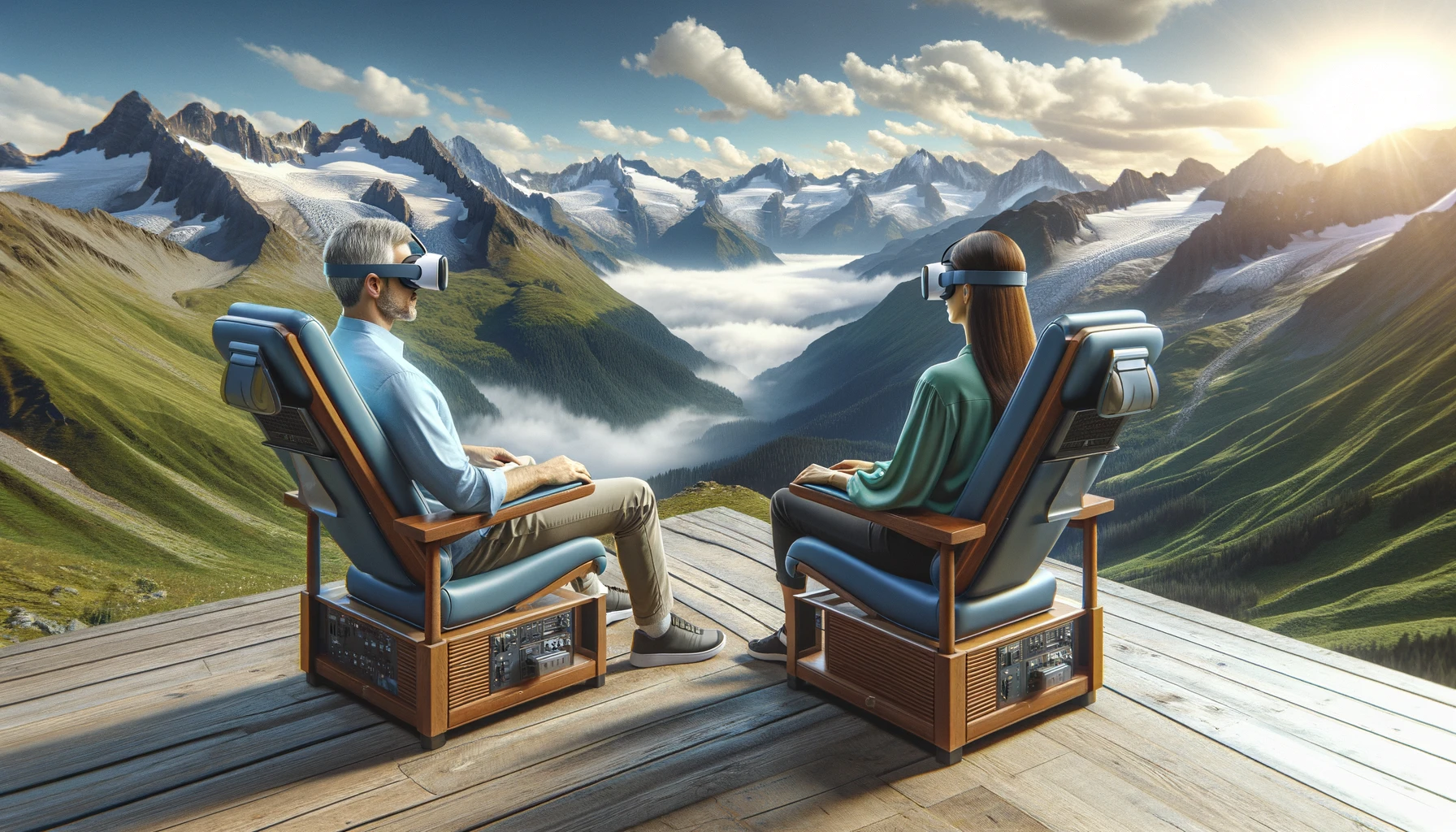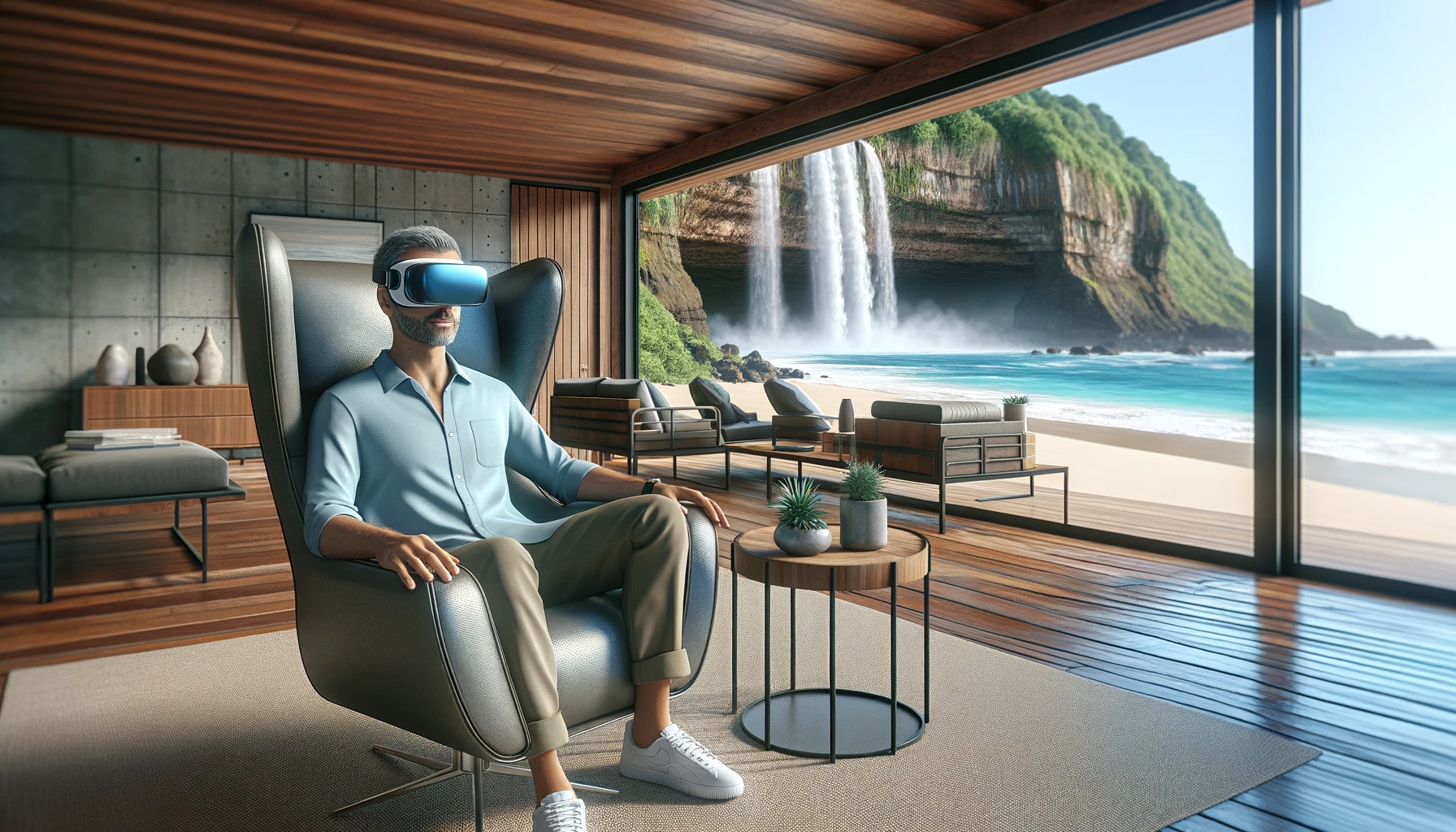Unlocking New Dimensions in Mental Health: The Power of Immersion Therapy via Virtual Reality
In recent years, virtual reality (VR) has transcended the boundaries of entertainment, asserting itself as a transformative tool in the field of...
1 min read
 Nerdle
:
May 13, 2024 11:32:15 AM
Nerdle
:
May 13, 2024 11:32:15 AM

In our fast-paced, constantly connected world, managing stress is more crucial than ever. Fortunately, technological advancements are continually providing new solutions to age-old problems. Virtual reality (VR) is emerging as a significant player in the realm of mental health, offering innovative ways to combat stress and anxiety. Through immersive environments and interactive experiences, VR is proving to be a powerful tool for relaxation and stress management.
VR technology transports users to different realms, far away from the stressors of everyday life. Whether it’s a peaceful beach, a quiet forest, or a serene mountaintop, VR environments can significantly alter one’s surroundings in a matter of seconds. This section explores how these virtual settings can distract the mind, engage the senses, and promote a deep sense of calm.
Beyond simple escapism, VR applications are now incorporating structured relaxation techniques such as guided meditations, deep breathing exercises, and progressive muscle relaxation. By combining these proven strategies with immersive visuals and sounds, VR can enhance the relaxation experience, making the techniques more engaging and effective.
One of the most significant advantages of VR for stress management is its accessibility. VR headsets and programs can be used at home, requiring only a few minutes to set up. This convenience allows individuals to incorporate stress management practices into their daily routines easily, without the need for travel or scheduling appointments.
Virtual reality's efficacy in reducing stress isn't just anecdotal; it's backed by science. Studies have shown that VR can significantly lower stress levels by engaging the user in 'virtual relaxation sessions' which help regulate the body's stress response. By simulating environments that promote peace and tranquility, VR can help decrease cortisol levels and increase feelings of relaxation. This effect is enhanced by the immersive nature of VR, which helps users disconnect from their real-world troubles and engage deeply with calming activities.
As VR continues to evolve, its applications in mental health are becoming more sophisticated and accessible. Vrenity is at the forefront of this innovation, offering tailored VR solutions that cater specifically to mental wellness and stress reduction. We invite you to explore how Vrenity can help you manage stress and improve your mental health. Visit us at Vrenity.com to learn more and begin your journey towards a calmer, more centered life. Join us and discover the transformative power of VR in mental health.

In recent years, virtual reality (VR) has transcended the boundaries of entertainment, asserting itself as a transformative tool in the field of...

In an era where mental wellness is more crucial than ever, innovative solutions are the beacon of hope for many. Enter VRenity, a pioneering force at...

The Emergence of VR in Mental Health Virtual reality (VR) technology has evolved significantly, becoming more than just a tool for gaming and...